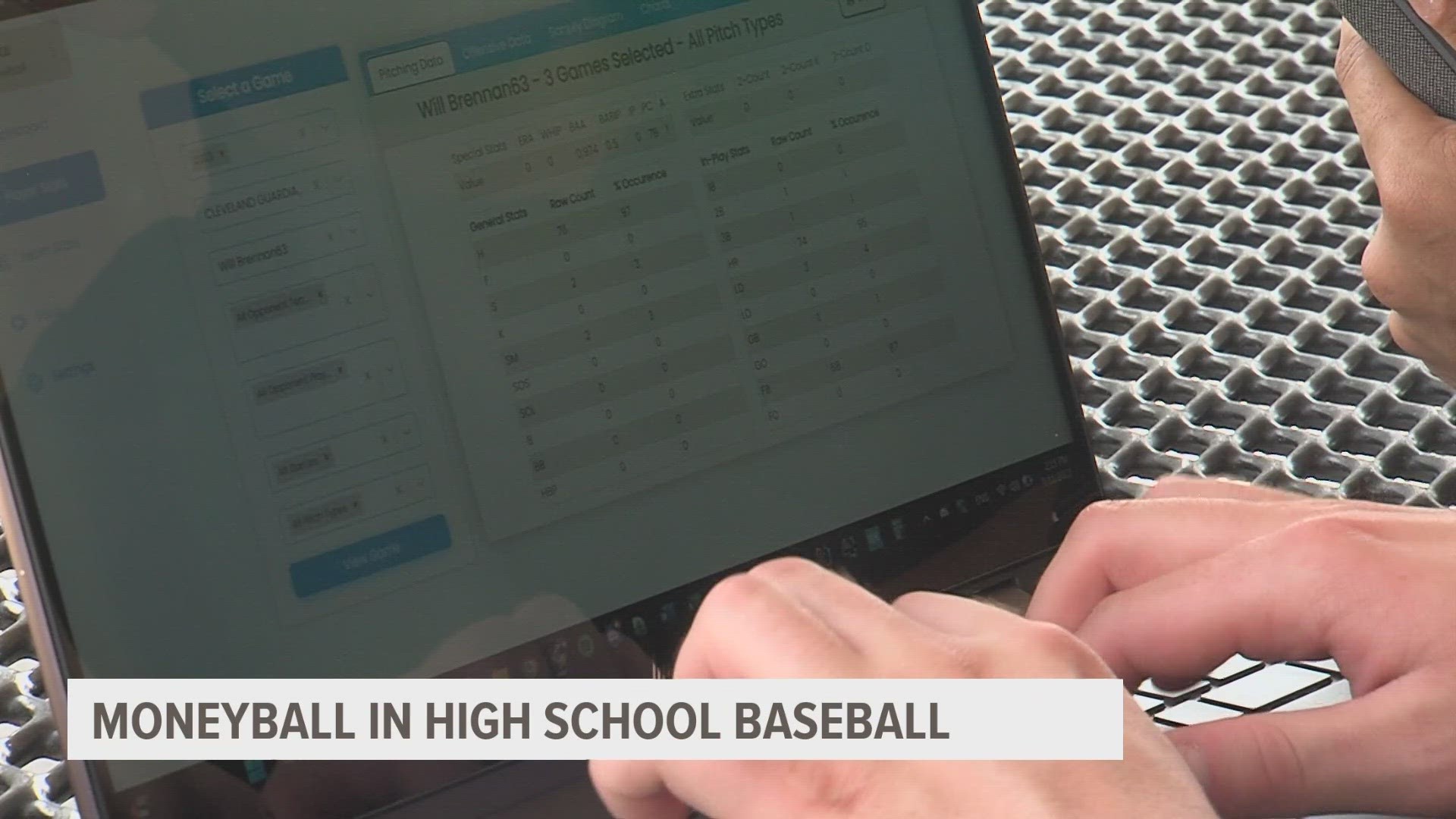WEST DES MOINES, Iowa — Baseball is America's pastime. The first ever game was played all the way back in 1845. That's nearly 100 years before the computer was invented. Both have come a long way and now the computer is a major part of the sport.
Typically baseball is won at the plate or on the mound — but what about the computer?
Meet Henry Shires and Ashwin Dervesh, two of the cofounders of Casmium.
"Any number of stats, whether it's averages, percentages, or charts [or] visuals on any number of their players or entire team, they have one place they can go, that has all the information they could ever want," Shires said.
"[It's] a pitch-by-pitch process, where everything can be calculated, every single thing that happens, can be shored, in one way or another," Dervesh added.
Shires, Dervesh and three others were students at Valley High School in 2020 when the baseball program needed help.
"We'd been living off, you know, hard copy charts, Google docs to collect a lot of our data for end game and a lot of offseason stuff too. And it just got cumbersome trying to keep track of all that. Went to our computer science, teacher and bait and literally just said, 'Hey, do you have kids that you think could basically build us a website to house data?' And he's like, 'Yeah, I think I've got some kids and put us in touch with them,'" said Garrett Hawkins, Valley assistant coach.
The rest is history: they developed an app that Valley still uses. Now, they are all engineering students at Iowa State.
They may have gotten smarter with time, but their work ethic has stayed the same.
"[At] 11 p.m., they're answering texts or phone calls, or they're checking in of how things are going. We've had to tweak a lot of things on the app and the website. And they've never once said, you know, no, we can't do that, or something's not possible," Hawkins said. "They're always willing to find a solution to problems."
Ames, Nevada, Red Oak and even a school in Georgia uses Casmium, but they are hoping that's just the tip of the iceberg.
"It's been a lot of learning a lot of growth. But I think it's been a really great experience in terms of growing our technical skills, you know, building a product, a solution that actually impacts people," Dervesh said.
"I joke, there's 80% left. So it's, it's definitely been quite a learning experience," Shires added. "We've had several challenges and failed really fast on a lot of things. But we're really confident that, you know, we're this much closer to making something successful."
The Little Cyclones, one of the teams using Casmium, just qualified for state for the first time in 28 years. Correlation doesn't always means causation, but these students clearly have a bright future ahead of them.

